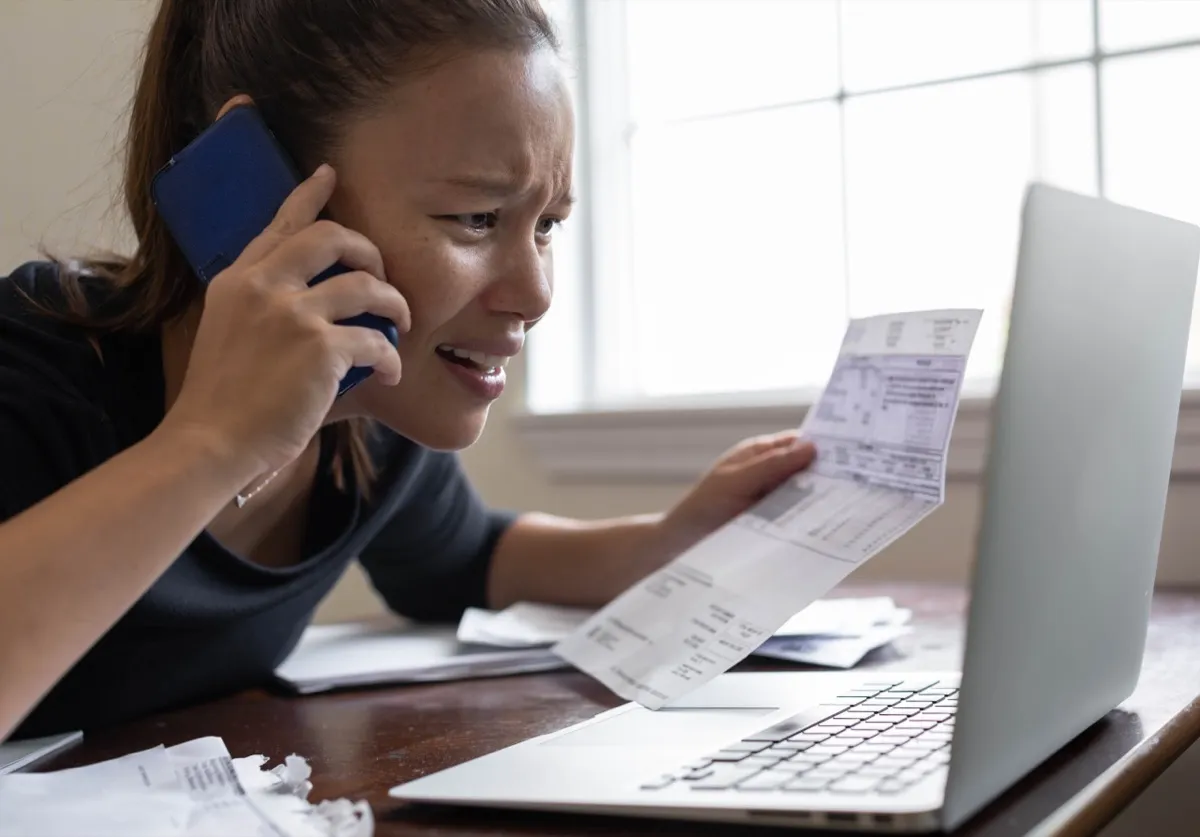If You Signed Up for This Internet Service, Contact Authorities Now

Having access to reliable internet is non-negotiable for countless jobs and innumerable leisure activities, from online shopping to video chatting with friends and family members. It’s understandable, then, that if you don’t currently have access to reliable internet service—or have trouble affording your current bill—that you might be seeking a new or less expensive provider. Unfortunately, if you signed up for one internet service, you might have inadvertently handed over your personal information to scammers, according to the Federal Trade Commission (FTC). Find out how to spot the scam and what to do if you think you’ve been targeted.
RELATED: If You Get This Message from T-Mobile, Delete It Immediately, Experts Say.
If you’re asked to pay to register for a free government internet program, call authorities.

In October, the FTC issued a warning to consumers about a new scam had been targeting U.S. residents by offering to provide them free internet service.
Many people are lured into the scam after seeing an ad on social media promising free internet service and a free device provided by the Federal Communications Commission (FCC). However, when you click on the ad, you’re directed to a page that requests you submit payment information to receive the supposedly complimentary device and service. Unfortunately, the FTC says, this information isn’t being given to an internet service provider—it’s being served up to scammers.
For the latest personal safety news delivered straight to your inbox, sign up for our daily newsletter!
The scam may also go after your personal information.

Even if you’re not asked to provide bank account or credit card information to receive your free internet service or device, you may still be providing scammers access to your sensitive information.
In other versions of the con, scammers may ask for personal details about you instead. This information may make it easier to steal your identity or access additional personal information that can be sold. “Don’t give your financial or other personal information to someone who calls, texts, or emails and says they’re with the FCC,” the FTC cautions.
Qualifying individuals may be able to access legitimate free internet services.

While scammers may be targeting individuals by pretending to be with the FCC, there is a legitimate program that provides free internet and devices to those in need.
The Emergency Broadband Benefit Program provides eligible individuals discounts with which they can purchase computers or tablets, as well as providing access to discounted internet service. However, no legitimate representative from this program will ask you to pay to sign up or receive these benefits, the FTC explains.
If you’ve already paid scammers, there may be a way to get your money back.

If you want to confirm that the program you’re signing up for is the real deal, contact the Emergency Broadband Support Center at 833-511-0311.
If you’ve already paid money to someone claiming to be from the Emergency Broadband Benefit Program, the FTC recommends calling your debit or credit card company and asking them to have the charges reversed. If you paid with a gift card, contact the company that issued the card and ask them to do the same. It may also be possible to reverse payments submitted via wire transfer or money transfer apps by contacting your bank or credit card company. If you believe you’ve been a victim of this scam, you can also contact your local police department and the Federal Trade Commission’s fraud reporting website to keep others from suffering the same fate.
RELATED: If You Get This Call from Police, Hang Up Immediately, Authorities Warn.